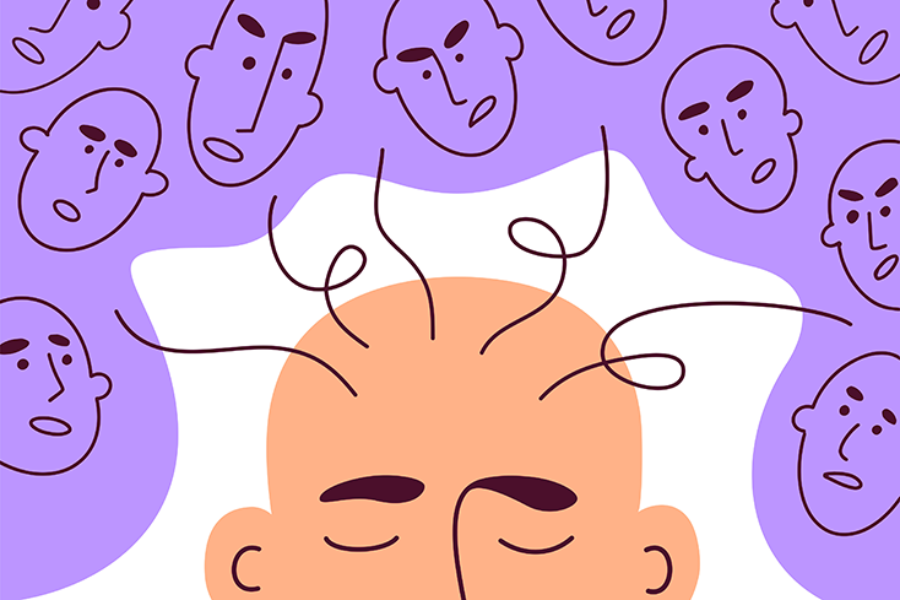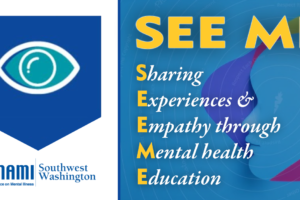I am not “normal,” although, at one time, I wished for nothing more. At 50 years of age, I am currently a grossly under-employed husband and father, proudly watching my two sons surpass me. The reasons for my current situation are plentiful, but at the root is my path through mental illness — and a continuing evolution toward recovery. I like to joke that I am a diagnostic alphabet soup: ADHD, PTSD, depression, anxiety. Take your pick, I have them all.
Since first seeking professional therapy in my adolescence, my journey has prioritized being “normal,” rather than having open and honest conversations that could have helped me find healing. I’ve only recently considered that normal should never have been my focus. I believe that normal is a subjective cultural and generational concept, bolstering the stigma surrounding mental illness.
“Normal” Doesn’t Mean Healthy Or Happy
My mental health journey began in my pre-teen years when I was unaware of my deep-seated depression. I lived in the Appalachian Mountains with my mother and older brother after we all escaped from a violently abusive household. This was a time when my father could mask his bipolar disorder with an 80-hour work week and substance abuse. No one questioned the physical or emotional abuse he doled out, as this was a “normal” response for a man under financial stress at the time.
I was a “latch-key kid” in the 1980s. For me, this meant essentially living alone in a house of four. When my ADHD reared its ugly head in the eighth grade, my teachers decided that it would be easier to hide me away in “in-school suspension” (ISS) — a six-by-eight-foot closet housing six desks and a one-way mirror for the teacher to observe us. If I wasn’t in ISS, I was in one-on-one counseling during school hours. But these sessions did not acknowledge the root of my challenges or even my potential for growth — they simply existed in an effort to mold me into something normal. Because I could never achieve this goal, I was quietly labeled as “mentally deficient.”
I never took algebra; I took consumer math. I never took foreign languages or extra credit; I took summer school and received psychiatric intervention. This insufficient education and the decision to write me off as “deficient” were viewed as perfectly fine courses of action — just another step in the direction of normal.
After high school and a move to Michigan, I quickly adapted to a life of substance abuse, developing an addiction to anything in reach. People around me failed to see this as another manifestation of my illness — it was seen as a normal way of acting out, done at the “appropriate” time — in my 20s. 30 years later, I look back and take note of how much I justified my substance use under the guise of it being seen as normal at the time.
Now, I Understand The Limits Of “Normal”
I finally realized that spending decades of my life trying to be normal wasn’t serving me. My struggles — and the insufficient response by the institutions that wrote me off instead of addressing my illness — continued to impact my well-being. Now that I have the gift of hindsight and perspective, I can see how normal got me where I am today; a place where I am still figuring out how to address my needs and access appropriate care. When I hear someone ask me, “Why can’t you just be normal for a change?” I hear someone who wants me to fit into a small box that eases their discomfort, like my teachers did in school.
I cannot, and no longer seek to, control other people’s definitions of normal, as these socially-constructed perceptions only perpetuate stigma around mental health issues and make it harder for people to recover. Now I know that normal doesn’t matter; instead, I focus on healthy. The concept of achieving a state of healthy living provides two distinct advantages: It is self-defined, and it allows for specific and achievable goals. Healthy considers the reality of the situation (no matter how uncomfortable) and allows me to tailor my care to my needs.
Achieving health is dictated through my choices and goals, no one else’s. It is an acute awareness of my mental and physical thresholds — and a deep respect for them. Healthy is not about how I react to you, but rather how I acknowledge myself as someone who can achieve more than normal.
Erik A. Magnuson is father and husband living in Central Florida. He has a passion for teaching and mental health awareness. Since the early 1980s, Erik has been working through issues surrounding many mental health issues, including depression and ADHD. He proudly graduated as an occupational therapist assistant and has been working in health care since. He hopes to bring a functional outlook to mental health care and education.
This Mental Illness Awareness Week, the NAMI HelpLine is here for you. If you or someone you know are facing mental health challenges, reach out to the NAMI HelpLine for support, resources and practical next steps. The NAMI HelpLine can be reached Monday through Friday, 10 a.m. – 10 p.m., ET. Call 1-800-950-NAMI (6264), text “HelpLine” to 62640 or email us at helpline@nami.org




